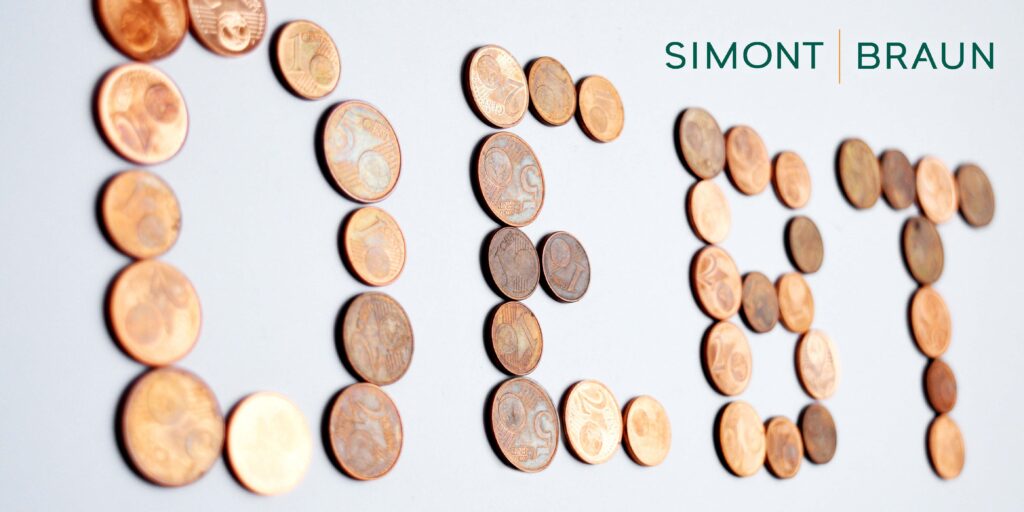| New rules on consumer debt collection in Belgium – Time to change your T&Cs.
Are you a company facing unpaid consumer invoices? What are you allowed to do in light of the new Belgian consumer debt collection rules? As of when do these rules enter into force and should you amend your existing T&Cs?
A new Book XIX (“Book XIX”) has been introduced in the Code of Economic Law (“CEL”) by the law of 4 May 2023, published in the Belgian Official Journal on 23 May 2023 and which answers all these questions.
WHY THESE NEW RULES?
Book XIX replaces the old Law of 20 December 2002 on the amicable recovery of consumer debts and introduces a few novelties. These changes include the notification of a first free reminder to the consumer of his unpaid debt, a 14-day waiting period before applying any damages clauses (with a possible exception for SMEs), limitations to damages clauses and sanction for companies in case of non-compliance with these new rules.
For this reason, the time has come for companies to take action, e.g. by amending their terms and conditions (“T&Cs”) since in case of clauses in contradiction with the new requirements, they expose themselves to sometimes severe sanctions.
WHAT DEBTS FALL UNDER THE NEW RULES OF BOOK XIX?
The relevant provisions of Book XIX apply to any late payment of a debt owed by a consumer to a company / undertaking, regardless of its size and sector.
Requesting a default interest and/or a lump-sum compensation from any consumer is only possible to the extent this option has been explicitly foreseen in the client contract and that the clause concerned is in line with the new rules.
AT WHAT TIME DO COMPANIES HAVE TO AMEND THEIR T&Cs?
Book XIX will apply to all new contracts concluded with consumers as of 1st September 2023.
They will apply as of 1st December 2023 to past due and unpaid debts arising from existing contracts entered into before 1st September 2023 where the delay in payment occurs after 1st September 2023.
WHAT CAN BE REQUESTED FROM THE CONSUMER?
1. Principle of the first reminder free of charge
If a company wishes to apply a damages clause in the event the consumer does not pay its debt on the due date, it is necessary to send this consumer an initial reminder, on a durable medium, free of charge and wait for the expiry of a delay of at least 14 calendar days (during which the consumer has the option to contest or voluntarily pay the amounts due).
2. Damages clause
These damages clauses can consist of late payment interests and/or a lump-sum compensation which are now capped by the law as follows:
- 20,- EUR if the outstanding amount is less than or equal to 150,- EUR;
- 30,- EUR plus 10% of the amount due on the portion between 150.01,- and 500,- EUR, if the outstanding amount is between 150.01,- EUR and 500,- EUR; and
- 65,- EUR plus 5% of the amount due on the portion exceeding 500.01,- EUR up to a maximum of 2000,- EUR, if the outstanding amount exceeds 500.01 EUR.
No other compensation can be requested from the consumer both by the creditor and any potential debt collection agency (requesting on behalf of the creditor): whenever a debt collection agency is appointed, this debt collector cannot charge (on behalf of the creditor) the consumer any amount exceeding the limits prescribed by the law for its activities. Moreover, the damages clause must contain some compulsory information in order to be valid.
A damages clause that does not meet the above conditions is prohibited and is deemed unwritten. In the event of a breach, a judge may void the clause in its entirety and not simply reduce it to the legal maximum amounts.
3. Amicable debt recovery by a debt collector
In case of amicable debt recovery by a debt collector, the latter will check legal compliance regarding the amounts claimed from the consumer. In principle, the debt collector will refuse to send a formal notice to the consumer if they detect a breach of the new rules of Book XIX (and without a formal notice, the debt collector will not be able to carry out any amicable debt recovery measure or act).
4. Incident temporarily preventing the debt recovery
Certain incidents temporarily prevent debt recovery measures or actions from taking place. These are cases where the consumer applies for a repayment plan (plan d’apurement/afbetalingsplan), initiates debt mediation (médiation de dettes/schuldbemiddeling) or a collective debt settlement (règlement collectif de dettes/collectieve schuldenregeling), or disputes the debt.
5. Sanctions
Breaches of the obligations relating to the principle of the first reminder free of charge and to the damages clauses are subject to level 2 penalties, which consist of a criminal fine of between 26, – EUR and 10 000, – EUR or (should this result to a higher amount) 4% of the company’s total annual turnover for the last financial year preceding the imposition of the fine.
You can download a PDF version of this news release here.
Any questions on these new rules or any support in relation of updating your T&Cs? Please reach out to our Digital Finance team: digitalfinance@simontbraun.eu | +32 (0)2 543 70 80
***
This article is not a legal advice or opinion. You should seek advice from a legal counsel of your choice before acting upon any of the information in this article.

